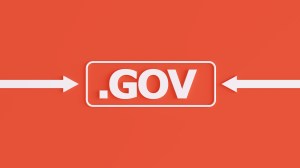Government services, tech earn high marks from public in pre-shutdown survey

A historically tumultuous year for federal employees didn’t dim the public’s pre-shutdown view of government services, according to a new survey that largely credited tech adoption for the positive perceptions.
The 2025 American Customer Satisfaction Index Federal Government Study, released Tuesday, found citizen satisfaction with federal government services at a 19-year high with a score of 70.4 on a 0-to-100 scale, a 1% jump from 2024.
The survey of 6,914 randomly chosen respondents was conducted before the longest government shutdown in U.S. history, but ACSI’s director of research emeritus emphasized that the results still “reflect real momentum in improving how citizens experience federal services.”
“The early introduction of artificial intelligence is already making a difference, from simplifying passport renewals to expediting benefits processing and enabling faster, more effective support,” said Forrest Morgeson, an associate professor of marketing at Michigan State in addition to his role at ACSI. “While these advancements are just beginning, they signal a future where government services can be more responsive and accessible to all.”
Many of the highest-ranking federal agencies in customer satisfaction were lauded for their implementation of technologies. The U.S. Department of Agriculture, for example, introduced “a variety of online tools” to boost the loan origination and servicing experiences for farmers and ranchers, per the survey findings. The USDA had the top citizen satisfaction score among agencies with 77, a 5% year-over-year uptick.
Though the State Department has been one of the most targeted agencies by the Trump administration and DOGE since January, the agency was neck-and-neck with the USDA with a score of 77, a 6% jump from 2024.
The ACSI noted a number of tech initiatives that fueled State’s high marks, particularly the Bureau of Consular Affairs’ work on passport applications. A digital renewal-from-home system was launched by Passport Services in September 2024, setting the stage for 1.5 million citizen sign-ups in 2025 and drastically reducing processing times.
The Small Business Administration was right behind State with a customer satisfaction score of 74, powered in part by the agency’s modernization work to streamline origination and service processes for SBA loans. According to ACSI, that work has cut times for processing non-complex loans under $500,000 from 10 days to four. (The Government Accountability Office in July dinged the SBA for delays and unreliable cost estimates on modernization efforts for its online certifications platform).
The survey also credited the Department of Labor’s utilization of AI to handle unemployment processes as a primary reason for its 6% year-over-year increase to a customer satisfaction score of 68. And though the Treasury Department finished last among the 15 agencies included in the survey, the ACSI noted its 3% climb to a 63 satisfaction score, which it attributed to the IRS’s expanded use of technology to ease taxpayer experiences.
Across agencies, the survey found little change in how the public broadly views government processes, websites, customer service and availability of information, but it did reveal a notable improvement in call center satisfaction (a 5% boost to 65) that the ACSI linked to callback systems, AI-powered virtual agents and voicebots.
It remains to be seen if the shutdown and the Trump administration’s decimation of the federal workforce halts the post-pandemic surge in positive customer service reviews for the government. The ACSI concluded its findings with a potential warning sign at the Office of Personnel Management, which saw a 7% year-over-year drop to a score of 71. “Persistent IT challenges” and the elimination of employee feedback tools were floated by ACSI as possible reasons for OPM’s drop.
“This decline is especially concerning as the federal government faces mounting difficulties in recruiting staff for critical technology roles, including cybersecurity and AI specialists,” the report stated. “As citizen expectations continue to rise alongside technological advancements, improvements in public satisfaction may be at risk if agencies are unable to attract and retain the talent needed to sustain progress.”






